Results
-
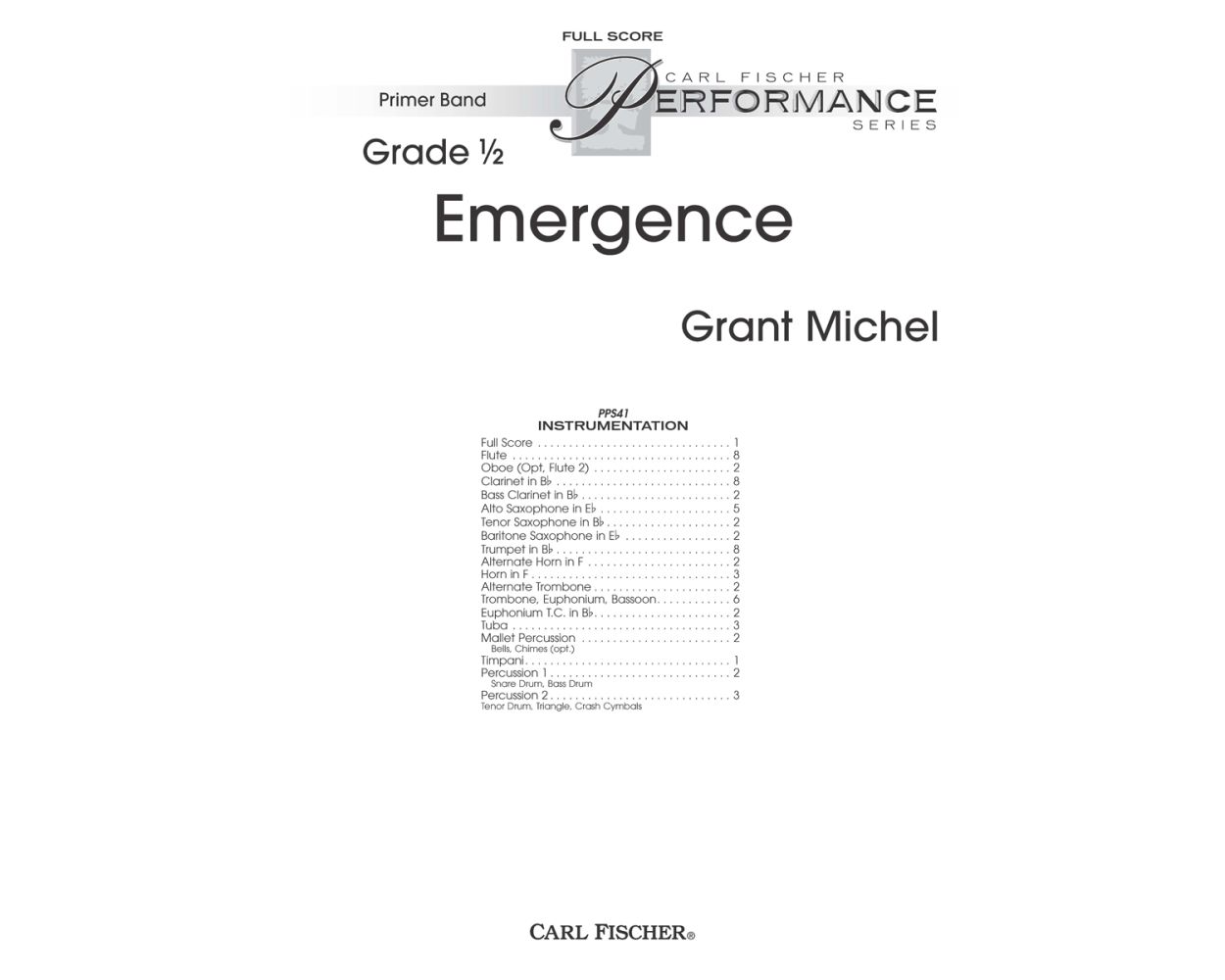 £38.00
£38.00Emergence
Emergence is a positive and uplifting composition for the youngest of concert band students that uses only the first six notes of the Bb concert scale. The sheer joy and excitement beginners exhibit from the discovery inherent in learning their instruments is a wonderful thing. This piece was written as a representation of that joy as these young students emerge from their first foray into music and glimpse of the musicians they can become.
Estimated dispatch 12-14 working days
-
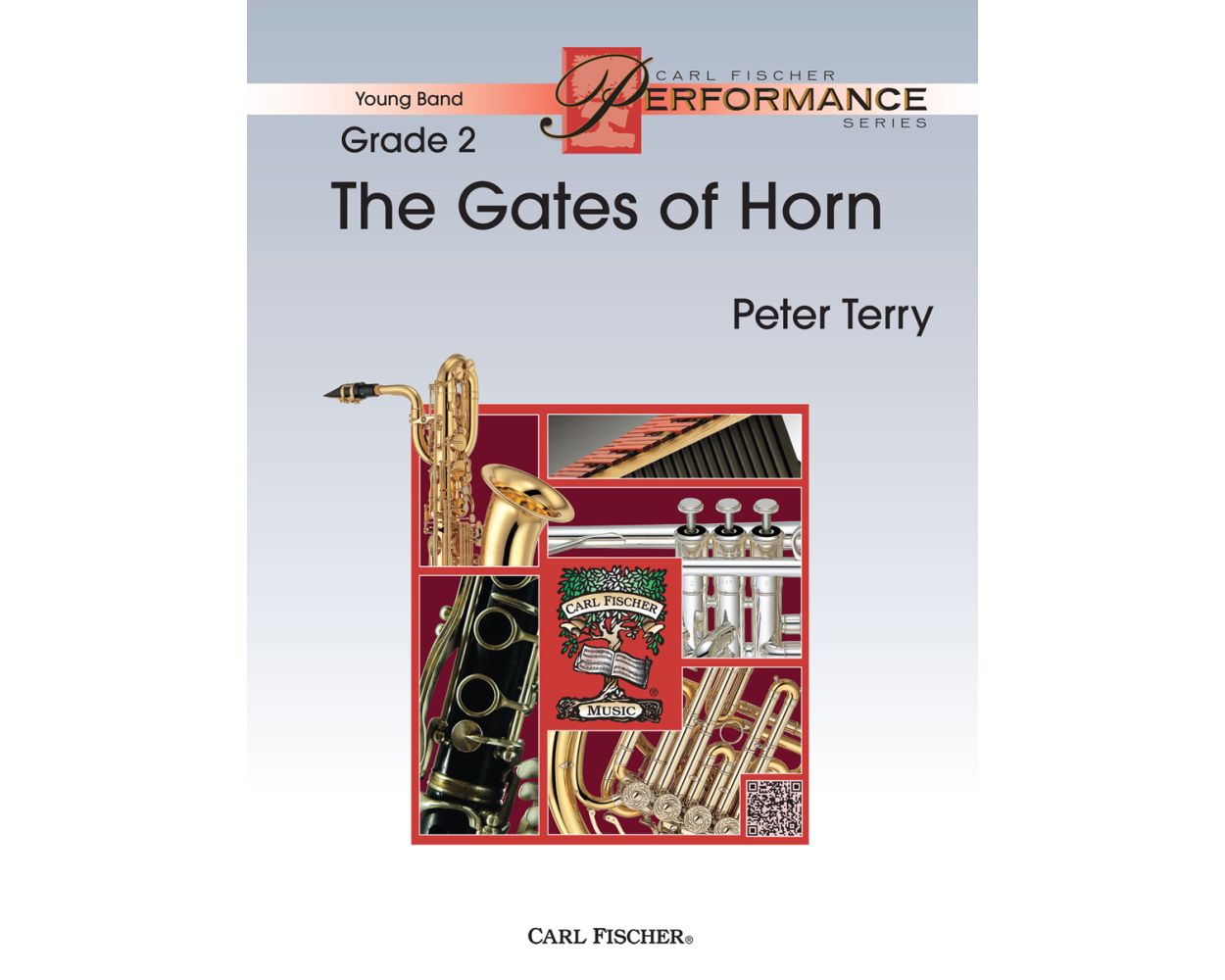 £57.00
£57.00The Gates of Horn
In the Odyssey, dreams come into the world through one of two gates. If they come through the gates of ivory they are false dreams. However, if they come into the world through the gates of horn they are true dreams that tell the user of things to be, or illuminate truth. The Gates of Horn is a dramatic piece for band that alternates a syncopated fanfare with a bold, yet lyrical theme. These contrasting ideas chase each other throughout the piece.
Estimated dispatch 12-14 working days
-
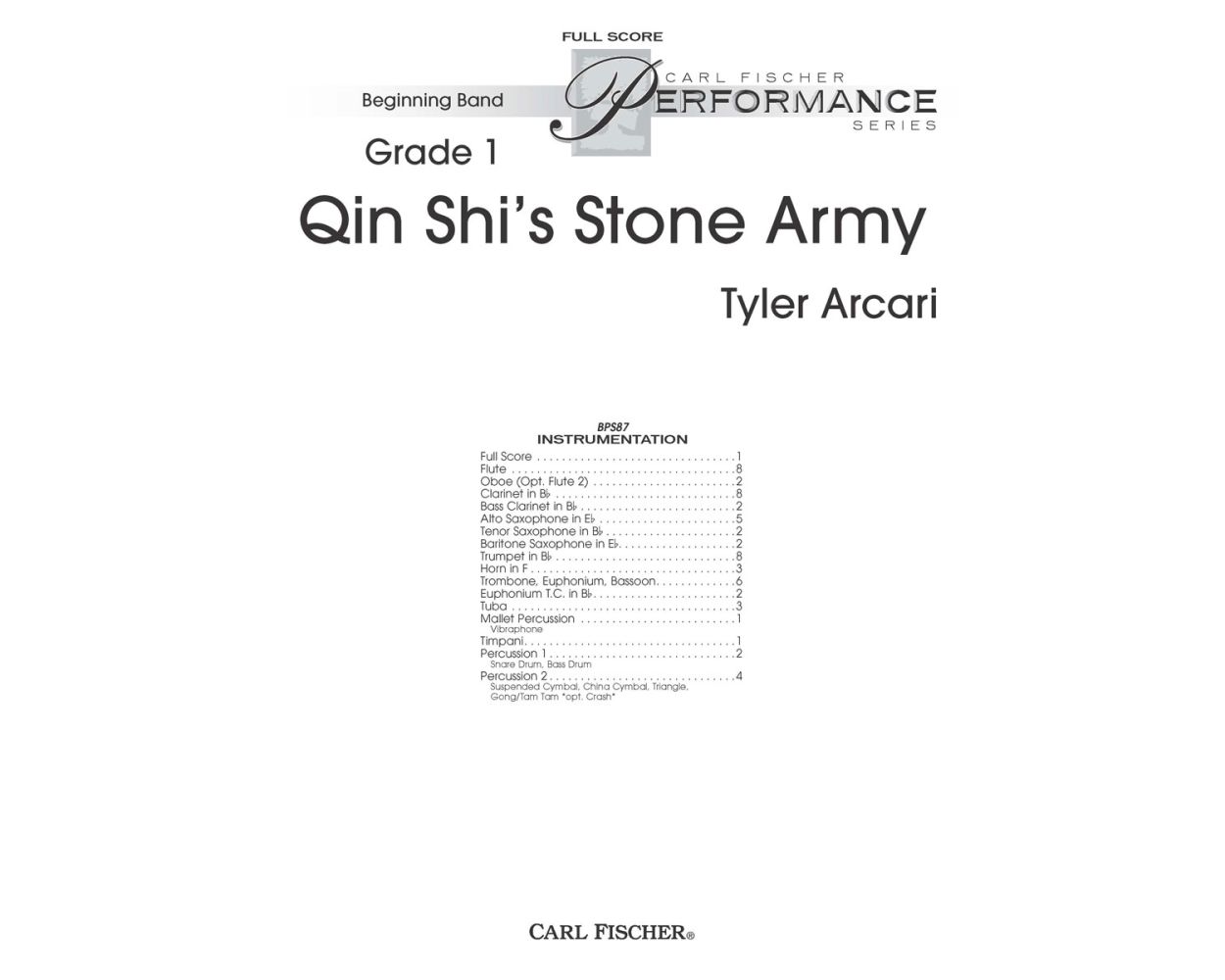 £40.00
£40.00Qin Shi's Stone Army
The Terracotta army that guards the tomb of China's first emperor Qin Shi Huang is nearly 8,000 warriors strong. This new piece for beginning ensembles is set to depict these magnificent stone soldiers. New composer Tyler Arcari draws on his background in music education to bring us a stunning new piece that young band students will love to play. It will sound rich and full, even with less experienced players. In addition to the wonderful music in this piece, there are great opportunities for cross-curricular learning with this contest worthy piece.
Estimated dispatch 12-14 working days
-
 £46.00
£46.00Thunderstruck
Thunderstruck is an exciting new piece from best-seller composer Sean O'Loughlin. Year after year, Sean provides us with music that is dynamic and rhythmically interesting to students and audiences alike. This piece contains an upward thrust in the melodic material that keeps reaching higher and higher into the climactic finish. Your students will reach new heights with this exceptional new piece for developing bands.
Estimated dispatch 12-14 working days
-
 £95.00
£95.00The Rusty Bucket
This piece is pure energy from start to finish. If you have ever played the popular Grainger classic Molly on the Shore with your band, think of this as a modern Molly on the Shore! This piece contains lots of pop/rock/Latin infused licks that will showcase the talents of your advanced band. It is a short but fun journey that will bring the audience to their feet.
Estimated dispatch 12-14 working days
-
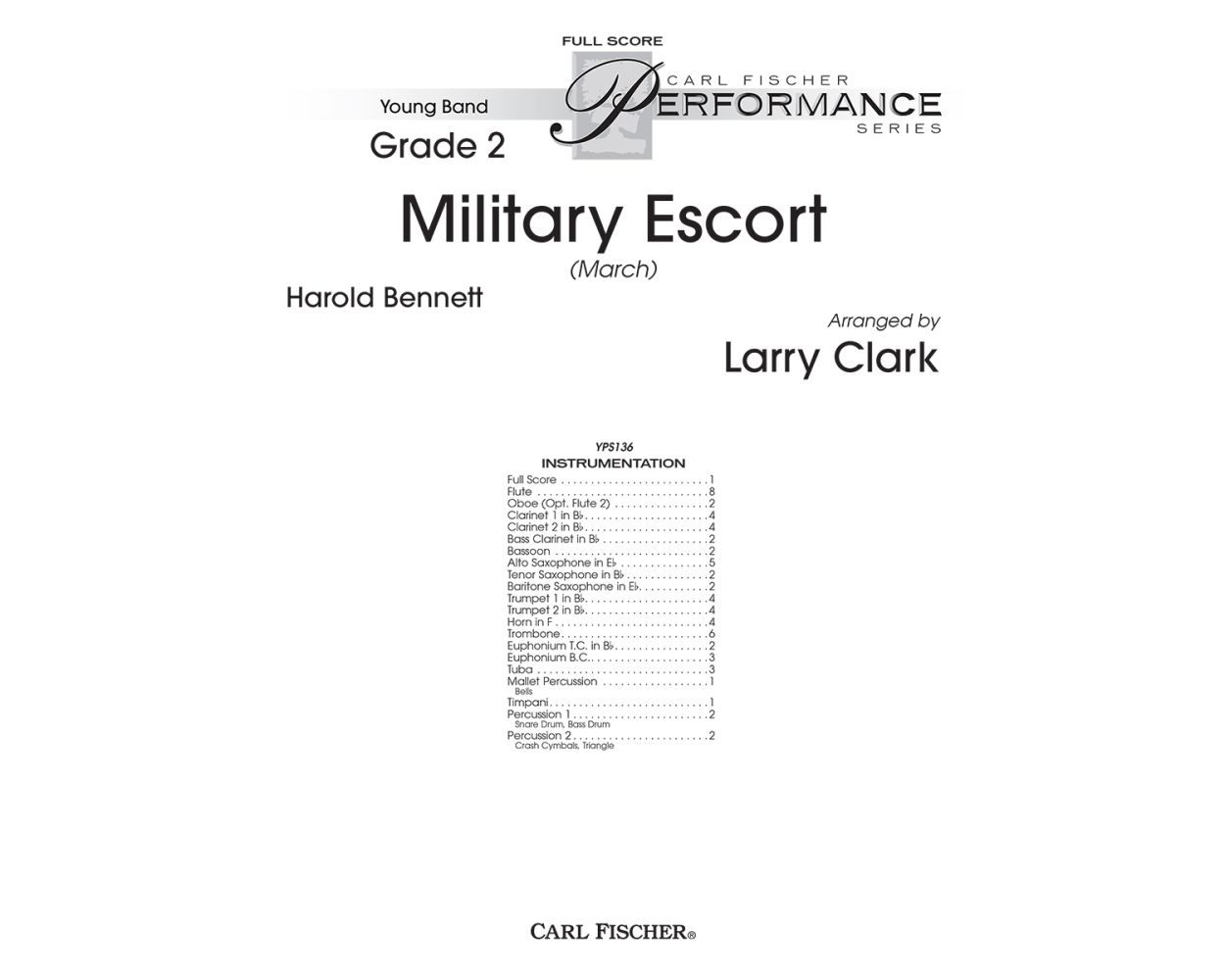 £49.00
£49.00Military Escort March - Harold Bennett
The most popular of Harold Bennett's (a.k.a Henry Fillmore) marches, Military Escort is one that even Sousa wished he had written. From the opening trumpet fanfare to the tuneful trio, this classic is one of the best! Larry Clark has arranged this, as he has many other Harold Bennett marches, to be better suited for today's bands. This is a proven winner in an arrangement that you know will work.
Estimated dispatch 12-14 working days
-
 £49.00
£49.00Adversary
Now, this is what composer Larry Clark does best! He gives developing bands daring compositions that they just absolutely love to play. In Adversary, an epic minor piece, he explores the villainous character that appears in most great stories. The added dimension of 3/4 time give this piece an intriguing rhythmic feel. It is full-sounding, but never taxing to the abilities of the developing band. A surefire winner!
Estimated dispatch 12-14 working days
-
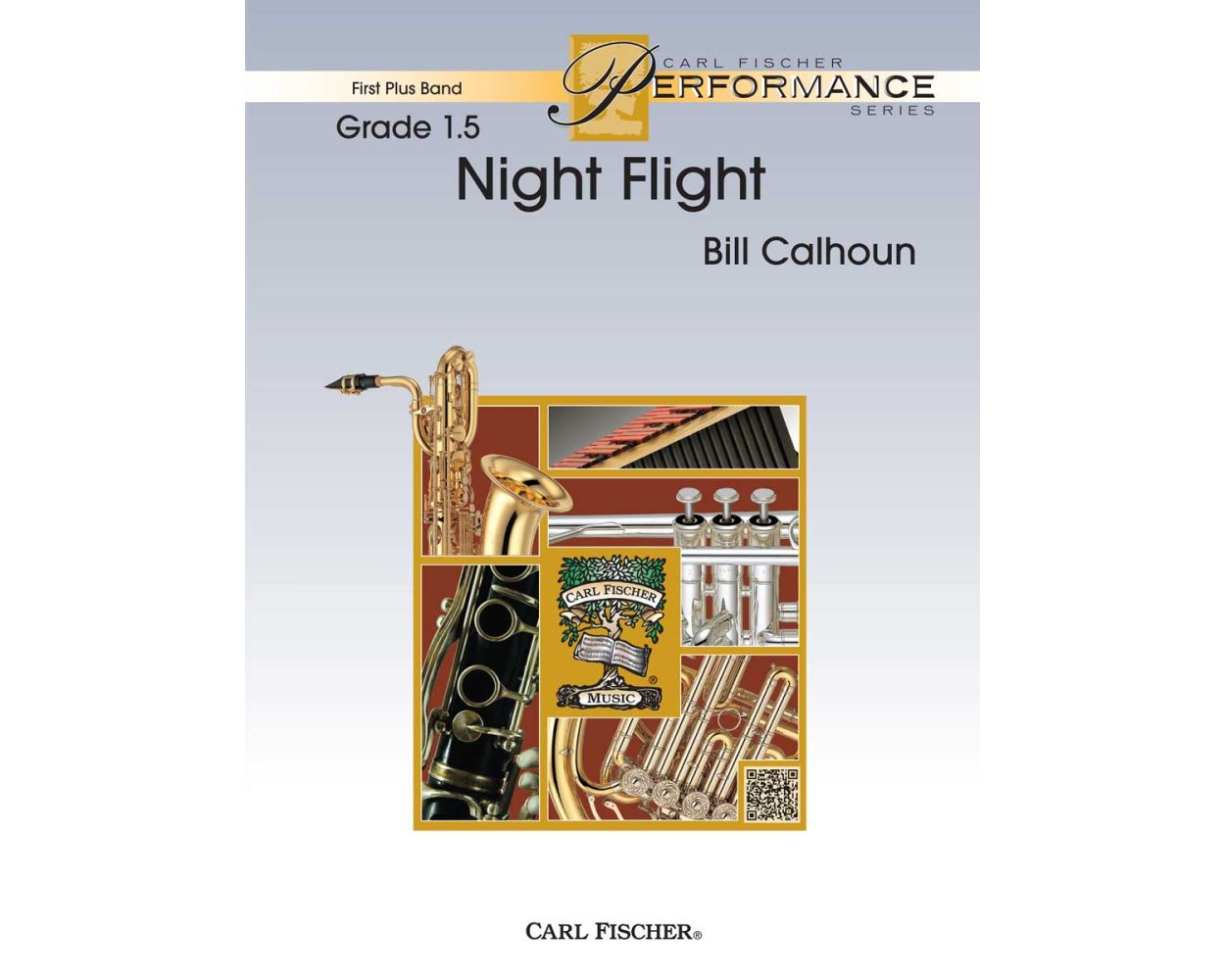 £44.00
£44.00Night Flight - Bill Calhoun
Bill Calhoun is quickly becoming one of the best composers in this business. He has a way of writing pieces that are exciting, well-scored, interesting and different. Night Flight shows his aggressive side with a piece that starts strong, right out of the gate. The fearless-sounding melody lifts up players and audience, grabs hold of them and takes them on the musical journey of a flight into the night sky. A perfect selection to showcase your developing band at a contest or festival performance.
Estimated dispatch 12-14 working days
-
 £46.00
£46.00Legacy
Composer Sean O'Loughlin has already produced a great deal of exceptional pieces for developing students that will leave a legacy to educators for years to come. This piece is a perfect example of his style of composing that students just love to play. Forceful and bold, Legacy is highly melodic with dramatic musical punches and lots of musical value. Sean has such a marvelous way of making these pieces for younger students sound like more mature music.
Estimated dispatch 12-14 working days
-
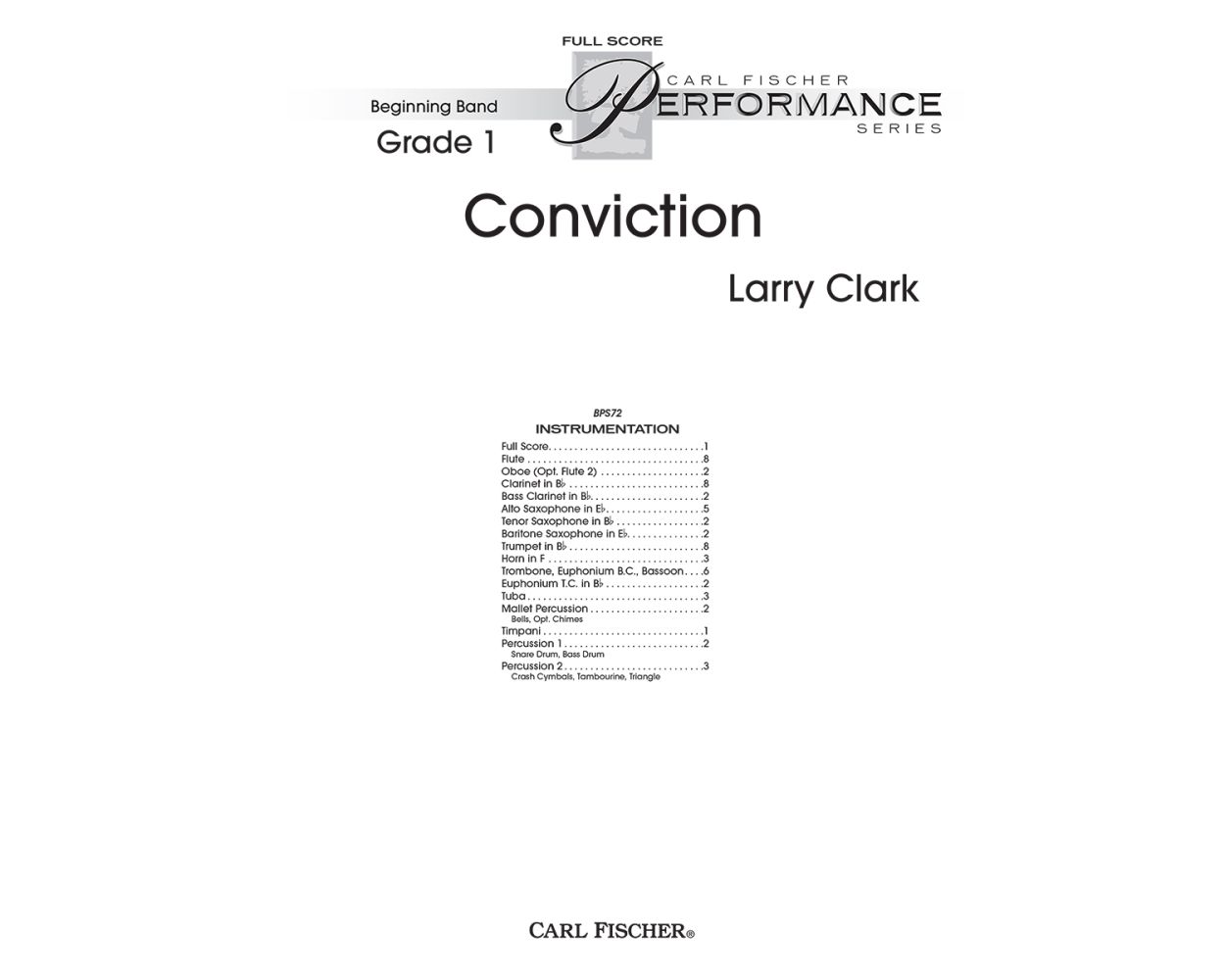 £40.00
£40.00Conviction
For several years, Larry Clark's music for beginning band has set the standard for musical excellence. He always finds a way to make his pieces fresh and sophisticated, incorporating contemporary harmonies with tuneful melodies that students love to play. He is also a master at knowing exactly what this level is capable of and writes technically easy music that still makes any band sound and feel great!
Estimated dispatch 12-14 working days
